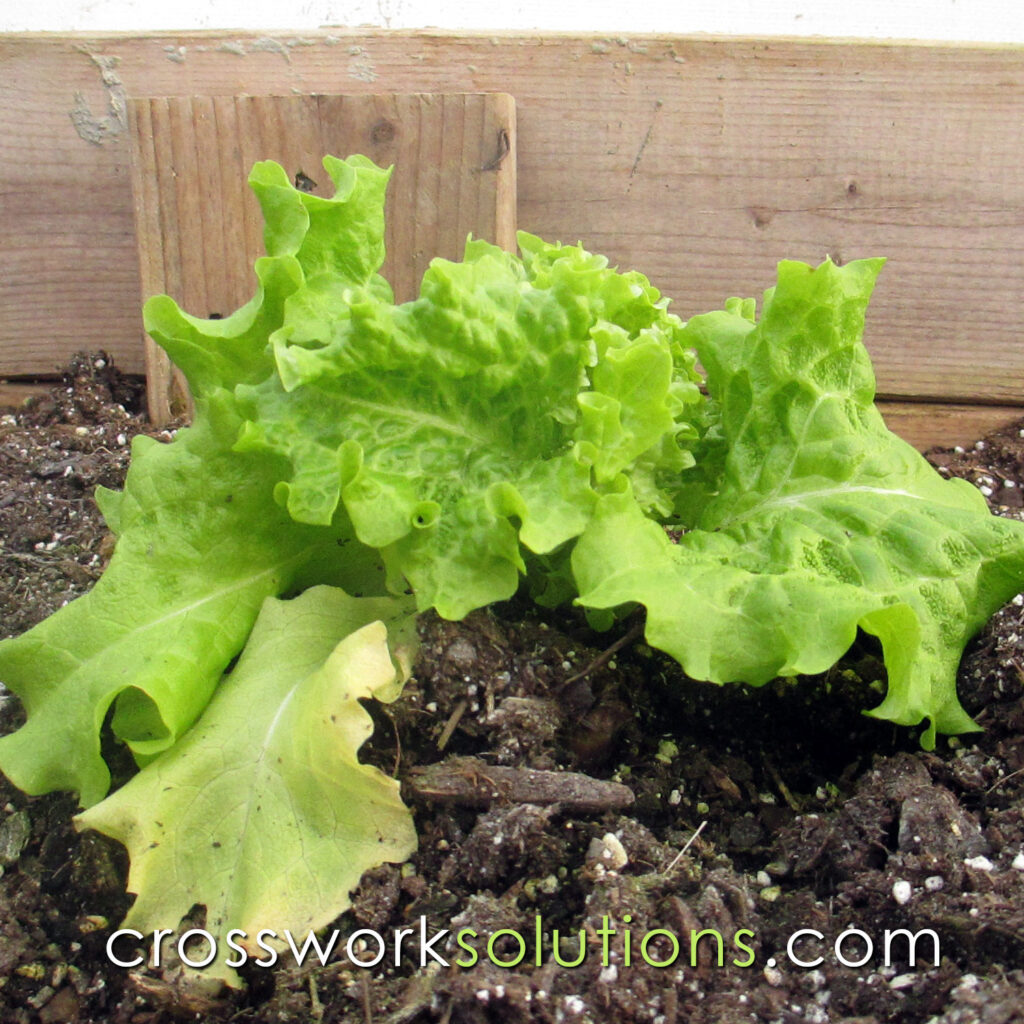Take a look at this miraculous fourth round of lettuce that I planted last March!

After I harvested the first bunches early last summer, I was delighted when about half of the lettuce seeds that I planted in March of 2020 sprouted a second time later that season. By late fall, I brought in some straggling leaves… maybe enough for one, good, family-sized salad. Christmas came and went, and then came the rain, the hard freezes, the sleet and frigid air. I didn’t even walk out to the greenhouse for over a month. When I went out today to begin preparing the soil in the raised beds, this perfect head of Burpee buttercrunch lettuce was there to meet me. I was floored!
It was such an encouraging reminder to me that living things are more resilient than we can logically account for. Where there is a willingness to grow, you can’t keep a hearty plant with deep roots from doing what it is compelled to do. People aren’t so different. Gardening is really a leap of faith that always yields far more than we anticipate. You plant some seeds. You expect to eat fruits and vegetables, or cut flowers. But in gardening, we also reap the benefits of working the soil, absorbing minerals, and breaking a sweat. It brings our awareness to the microscopic ecosystems of living things that harmoniously exist outside of four walls. It also gives us a chance to clear our minds, unload our burdens, and notice how we are feeling or what we are thinking.
Through Crosswork mindfulness, you can learn to pay attention to your life and invest in your health by setting boundaries and prioritizing time for the things you enjoy most– including hobbies. Through Crosswork yoga, you can learn to move toward gratitude, a more optimistic outlook, or consideration and empathy toward others. This will help you to become a healthier individual, partner, friend, or employee. Healthy employees are more productive and more likely to contribute to positive peer relationships in the workplace.
Do you have a hobby that allows you to step away from the daily grind and be restored? Maybe you used to; maybe it was golf, running, or reading. Whatever it is, make time for it this week.
P.S. If you just said to yourself, “I just don’t have time for hobbies,” then it’s time to email me.

